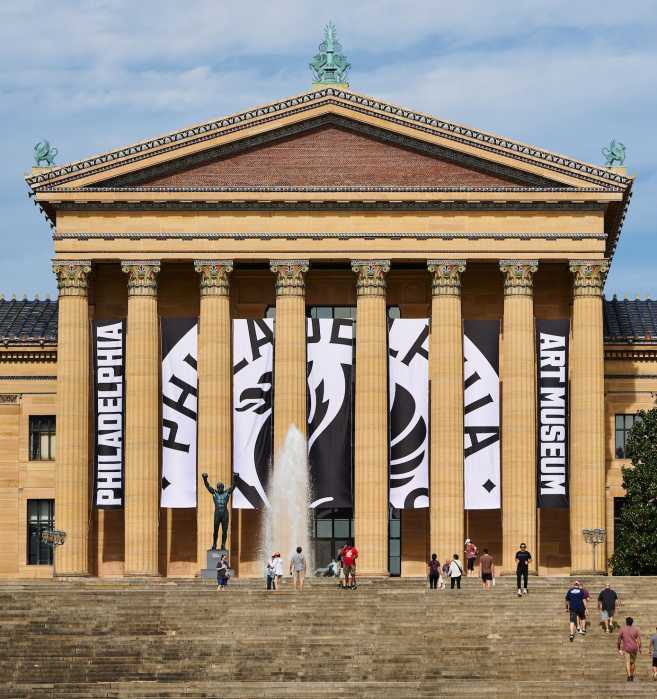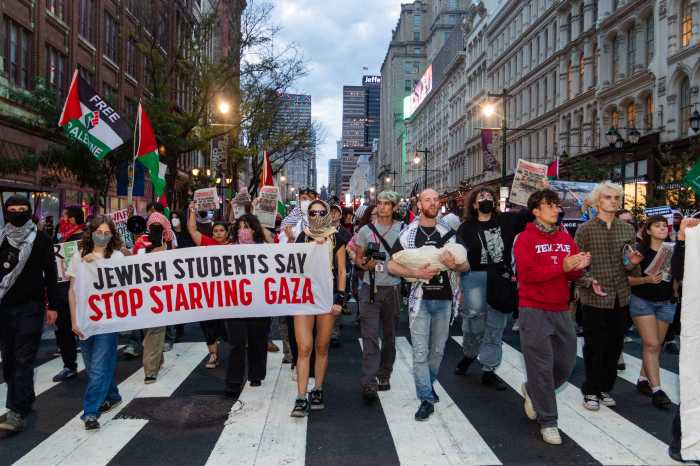University City District not only picks up trash, but will now make treasure out of it.
The special services district around the University of Pennsylvania and Drexel University yesterday celebrated the grand opening of The Dirt Factory, a new composting facility that takes food waste and fallen leaves and converts it to high-quality organic compost.
Like recycling, composting is seen as a way to save the environment by diverting organic waste from landfills. It also helps plants by enriching the soil, which has created demand in University City where there are roughly a dozen community gardens.
“We have a lot of people in the neighborhood that want to compost their organic waste,” said Seth Budick, a UCD employee involved in the project. “And we have a source for it in the form of gardens, so wouldn’t it just be the essence of sustainability if we could keep all that material in the neighborhood and out of the waste stream.”
The facility also figures to help advance the city’s sustainability efforts. One of the city’s goals as part of the Greenworks initiative is to divert 70 percent of waste from landfills by 2015. In May, city officials began a pilot program to study the amount of food waste it can divert.
“Education and outreach is important. Having sites like the Dirt Factory where Philadelphians can go up and see composting in action and play a role … is critical,” said Katherine Gajewski, the city’s director of sustainability, describing composting as “the next frontier” in waste reduction.
For businesses like Four Worlds Bakery, composting makes both environmental and financial sense. As a result of recycling and donating its compostable materials, the West Philadelphia eatery only puts out one bag of trash each week, saving significant money on trash hauling.
“It’s for both reasons,” baker Jimmi Romberger said of composting.
Budick said labor will be minimal, allowing UCD to offer the service for free. “Our expenses are really just a little bit of staff time to have somebody over there.”
Making dirt
Like most large projects, the Dirt Factory required help from several entities in order to materialize.
UCD reached an agreement with the landowners at 43rd and Market streets to create the site on a vacant lot.
UCD partnered with Pedal Coop, based in University City, to transport the compostable materials from businesses and residents to the factory – by bicycle, of course. Community members will also be able to drop off material directly at the site.
The University of Pennsylvania donated two large earth tubs that it had decommissioned that will allow the site to churn out up to 3,200 pounds of compost a month.
Temple grad will your trash
Tim Bennett was among the first in Philadelphia to tap into the composting movement in 2009 when he founded Bennett Compost.
The business serves residential and commercial customers, offering five-gallon buckets for $10, according to a deal now on his website. His company will also pick up residents’ waste for $15 a month. Businesses have to call for a quote if they’d like their waste picked up.
“I just kind of started small based on talking to some people and it grew organically from there,” said Bennett, a Temple University graduate. “I didn’t know it would take off. I just had a hunch from some people I’d talked to.”
What’s allowed
Bennett Compost will pick up the following organic materials for composting:
Cardboard
Clean paper
Coffee grounds and filters
Corncobs
Cotton rags
Dryer and vacuum cleaner lint
Eggshells
Fireplace ashes
Flowers
Fruits and vegetables
Grass clippings
Hair and fur
Hay and straw
Houseplants
Leaves
Pine needles
Newspaper
Nut shells
Sawdust
Tea bags
Wood chips
Wool rags
Yard trimmings




























